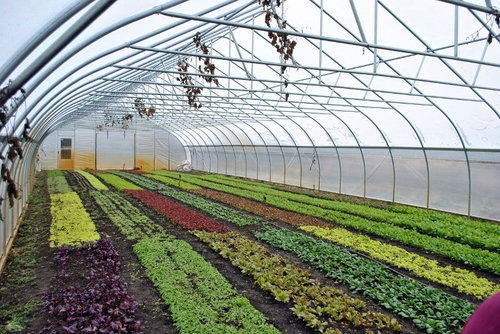16 January 2024
Continent: Africa
Duration: August 2023 – August 2024
Donor: Nuffic
Partner: Kwadaso Agricultural College, Maastricht School of Management

In August 2023 the project entitled “Skills development in Climate Smart Horticulture with improved access for marginalized groups to ATVET” was kickstarted from Accra, Ghana.
The Farm institutes at Adidome (AdFI), Wenchi (WFI), and Asuansi (AsFI) are the three Farm institutes in Ghana under the auspices of the Human Resource Directorate of the Ministry of Food and Agriculture (MoFA) with the mandate of training low and middle-level Agricultural professionals for the Agricultural sub-sector in Ghana and beyond. Its responsibilities include to attract young minds and staff to offer innovative and transformational leadership, to offer practical agricultural solutions in a sustainable manner that brings value to all stakeholders and meet national agricultural and Agribusiness needs. Damongo Agricultural College (DAC) is one of five agricultural colleges under MoFA, focusing on middle-level Agricultural professionals. Both WFI and DAC are situated in the more northern, arid regions of Ghana.This project aims to address challenges related to climate change and inclusion of vulnerable youth.
In the northern part of Ghana, it becomes harder to grow vegetables for consumption due to the extending dry season. Even in green-houses, the evaporation rates are higher leading to a higher water need. Vegetable seeds are not optimized for the current conditions and there is a lack of knowledge and connection with relevant companies in this field. Furthermore, climate smart technologies like solar-based irrigation are promising, but there is a skills need in the basic operation and maintenance of these systems.
Related to inclusion, the project focuses on marginalized youth growing up in children’s homes. After their 18th birthday, they are released from the children’s home and have nowhere to go. In addition, they often need additional training before being able to join a Farm institute training at NQF level 1 or 2. This means a pre-course should be developed to ensure these youngsters can follow-up their education at the Farm institutes for a meaningful job in agribusiness.
The project is composed of three main components: 1) Climate Smart Agriculture, 2) Horticulture production & processing, and 3) Inclusion of vulnerable youth.
For each component, (A) modules or short-courses will be developed that can be integrated into the existing CTVET-accredited curricula. Subsequently, (B) Training of trainers (ToT) will be conducted based on a compact skills gap analysis. Finally, (C) required investments will be made to support the sustainable implementation.
Private sector development through capacity strengthening the industry liaison offices, as well as women in horticulture are cross-cutting components. For women in horticulture, a workshop will be organised with key stakeholders. In this workshop there will be attention for leading women role models and a discussion on the challenges and improvements that can be made. Public sector partners – MoFA and CTVET, among others – will be involved in order to sustainably implement and accredit the modules where possible. As indicated earlier, cooperation with the private sector will be an important element in the project. For that reason, a new element will be pursued in collaboration with CTVET: initiating the ‘learning companies’ approach (in Dutch: Leerbedrijven).
In the hybrid kick-off, all parties involved validated the project set-up, and it was finetuned to the individual college needs. The initial drafts for training needs and investment needs were made to start up the process. A supplier and trainer of solar-based irrigation systems was visited and onboarded in the project.
